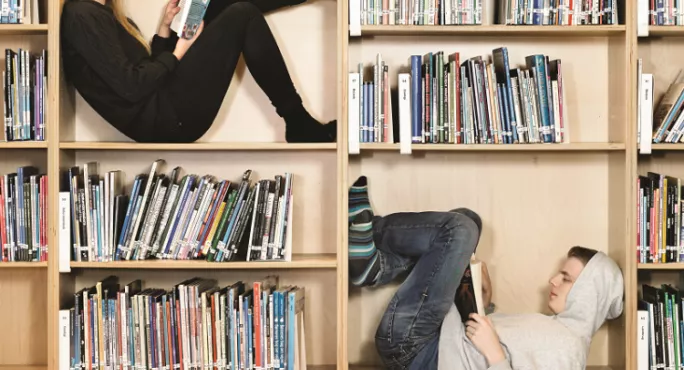“The message in secondary is that we don’t necessarily know what to recommend in terms of teaching reading as there is so little research in secondary when it comes to reading,” laments Dr Jessie Ricketts, head of the Language and Reading Acquisition (LARA) research lab at Royal Holloway, University of London.
The LARA lab researches all aspects of reading, writing and language acquisition, but problems with reading at secondary is a current focus.
In this week’s Tes Podagogy podcast, Ricketts explains how it is unfair and unhelpful when literacy issues in secondary are blamed on primary schools.
“I think it is unfortunate that some teachers feel they need to do this blame game,” she says. “For any teacher in any classroom, unless they have a selected class, you are likely to have an almost impossible range of knowledge and skills. What you have to do is do the best with what you have got. I think it is a really tall order to expect every child to leave primary school with all of the knowledge and skills they need to enter secondary schools. Teachers are incredibly hardworking and they care about what they do, and they are doing their best with the time and resources they have.”
The shifting focus of literacy
Ricketts says part of the problem is that, as you move through school, the focus of literacy shifts: from everyday vocabulary acquisition and phonics in early years to general comprehension, then to academic and subject-specific language. She explains that problems may not necessarily emerge at the start, but rather at any one of these stages. And also, she adds, kids get very good at hiding problems.
What is clear, she says, is that secondary teachers need help: they tell her this constantly during her research.
“From talking to secondary teachers, I realised that secondary schools were faced with a group of children who did not have functional reading abilities and they did not know what to do about it because in their ITT [initial teacher training] and CPD they did not get much information on the science of reading, how children read or what you might do to improve reading skills,” she explains. “It is not really seen as the job of secondary.”
In the podcast, she talks at length about how literacy at secondary might be tackled and she also covers the role of oral vocabulary in early reading, the impact of reading on spoken language and the need to help students independently broaden their vocabulary.
You can listen here or download from the app store.
Want to keep up with the latest education news and opinion? Follow Tes on Twitter and like Tes on Facebook
